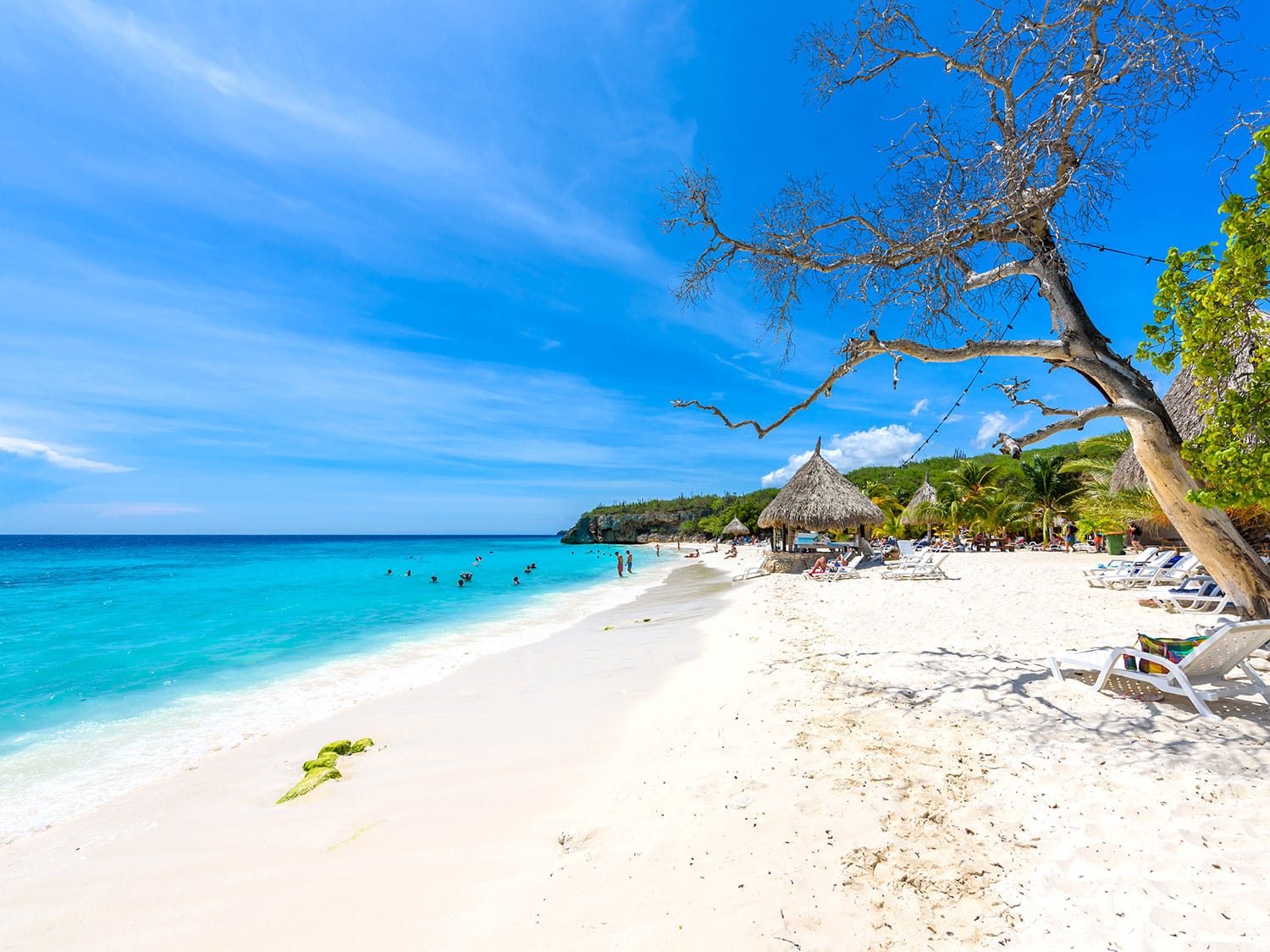Curaçao Begins Reopening To The U.S. With The Tri-State Area
The Dutch Caribbean island’s roll out will begin safe and small in early November.
For the first time in months, the Dutch Caribbean island of Curaçao will soon reopen its borders to visitors from the United States. But before you get too excited about the thought of all those food trucks, there's an important catch—only residents of the Tri-State area will be welcome at first.
Beginning November 1, people who live in New York, New Jersey and Connecticut can travel to Curaçao for snorkeling, exploring the Hato Caves and, of course, spending as much time as possible at Cas Abao Beach. This limited reopening is part of a gradual approach to reigniting the region's tourism, and Curaçao's officials hope it leads to a broader welcoming, soon.
"After consulting with the scientific community and an esteemed panel of doctors both in The Netherlands and on the island, we made the decision to slowly reopen Curaçao's tourism industry to the US," explained Paul Pennicook, CEO of the Curaçao Tourist Board. "A multitude of factors were taken into account including current cases, airlift and impact on the local economy, among others."
United will relaunch nonstop weekly service from Newark Liberty International Airport to Curaçao International Airport on November 7, while JetBlue will feature twice-weekly flights from JFK on December 7.
But there's no trip to be enjoyed without pre-travel requirements. For starters, all visitors must present proof of a negative Covid-19 PCR test administered within 72 hours of traveling (it is also important to know the difference between tests, as antibody tests will not be approved). From there, travelers will upload the test results to their Digital Immigration Cards and then complete a Passenger Locator Card within 48 hours of departure. Naturally, for anyone looking to use a relative's address in one of the three states, proof of residence is also mandatory.
Like all other Caribbean islands that have reopened their international borders, Curaçao has taken the time to develop its own set of health and safety protocols, known as "A Dushi Stay, the Healthy Way." In addition to resort and hospitality workers being specially trained to practice and oversee new social distancing and hygiene standards, visitors will receive personalized phone calls from the public health office as part of the island's monitoring system, and there's even the "Dushi Stay" app that provides all crucial travel information, from entry requirements to emergency contact numbers.
Should all go well with the welcoming of guests from these "low-risk" states, more U.S. travelers could soon follow.
